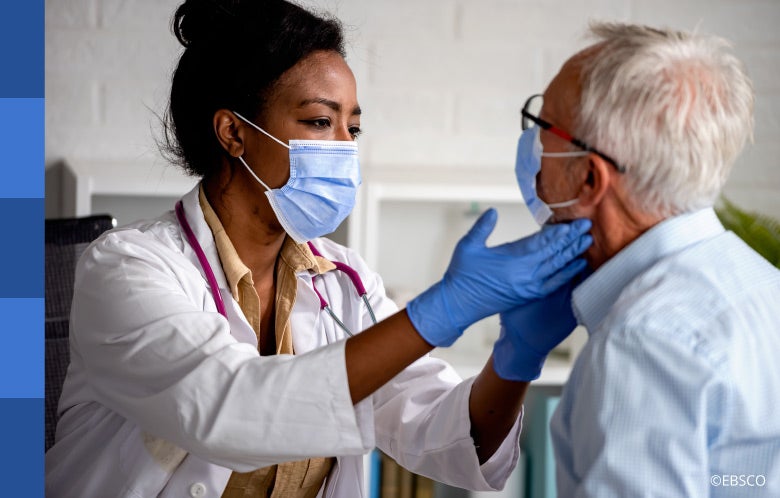More than three years into the global COVID-19 pandemic, we have few treatment options for outpatient therapy. While vaccines have reduced incidence of severe disease and mortality, many people remain at high risk for clinical progression and many deaths due to COVID-19 continue to occur.
The first-line therapy for high-risk patients with mild-moderate COVID-19 is Paxlovid (nirmatrelvir/ritonavir), a combination antiviral drug that has many drug interactions limiting its widespread use. The only other options include two other antiviral drugs: molnupiravir and remdesivir. Molnupiravir may have reduced efficacy against Omicron and remdesivir requires three days of intravenous injections, making it a logistical challenge. Due to resistant variants, none of the monoclonal antibody therapies remain authorized for use in the United States.
A recent randomized trial published in the New England Journal of Medicine suggests another option. In this trial, nearly 2,000 high-risk adults with COVID-19 presenting to an outpatient care center within seven days of symptom onset were randomized to pegylated interferon lambda or placebo as a single subcutaneous injection. High-risk factors included age 50 years or older (39%), obesity (37%), hypertension (30%), among others; and nearly two-thirds of patients had multiple comorbidities. The trial took place between June 2021 and February 2022, spanning Delta and early Omicron waves. More than 80 percent of patients had at least one vaccine dose prior to enrollment.
The primary outcome was hospitalization or emergency department visit within 28 days. In intention-to-treat analysis, the primary outcome occurred in 2.7 percent of patients treated with interferon and 5.6 percent of patients given placebo (relative risk 0.49, 95% CI 0.3-0.76). Interestingly, other outcomes trended in the same direction (patients in the interferon group fared better than those in the placebo group); however, none of those outcomes were independently statistically significant.
Larger treatment effects were observed in patients treated with interferon within three days of symptom onset, suggesting that earlier treatment may be more beneficial. This makes sense given that interferon interferes with viral replication – hence its name – so earlier treatment may blunt viral growth and prevent the worst effects of the SARS-CoV-2 virus.
Interferon lambda is not yet authorized for use and it’s not clear if regulatory agencies in the United States, Europe, or elsewhere intend to consider it at this time. So, interferon might not get the chance to truly interfere with the COVID-19 pandemic.



